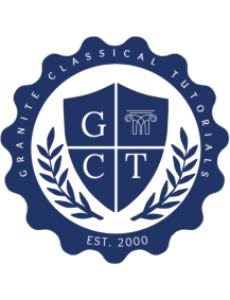In The Way of Beauty,David Clayton asks an important question: “What does the famous and mysterious phrase of Dostoyevsky, ‘Beauty will save the world’…mean? Does this mean that the beauty that is in the world will save it? Or must we look for a beauty from beyond the world?” His answer is, “a bit of both. The beauty that is in the world comes from beyond it. It directs us to where it comes from. The Christian religion, especially, is all about this saving beauty.”
When we talk about classical education, truth tends to get a lot of airtime; we want our students to be logical, rational, reasonable, able to discern truth. And when we speak about Christian education, goodness also tends to get airtime because of our focus on moral and spiritual virtues. Beauty can sometimes be sidelined. I think part of the reason for this is that beauty is seen as subjective. Think of the common phrase, “Beauty is in the eye of the beholder.” But that is a somewhat modern, secular idea. David Clayton points out that we think of truth and goodness as objective because they come from Christ. But beauty also comes from Christ. Beauty therefore can’t be any more subjective than goodness and truth. As Clayton puts it:
“Beauty, like truth and goodness, is an objective quality. It is a quality in a thing that directs us to God. It calls us first to itself and then beyond, with an invitation to go to Him. If we heed that call, we respond with love to that beauty and open ourselves up to it and to its ultimate source, the inspiration of the artist, God. When we do this, it elevates the spirit and provides consolation to the soul. Beauty is the quality in a painting through which the artist can ‘bear witness to the Light.’”
Beauty is intuitive, to some degree. Everyone recognizes and appreciates beautiful things at a fundamental level. But just as our ability to comprehend truth and to recognize goodness beyond the obvious needs to be trained, so does our ability to see beauty need to be trained. As Socrates famously says in Plato’s Republic, “The object of education is to teach us to love what is beautiful.” This is part of what the liberal arts help us to do. They help us to rightly perceive and appreciate the beautiful and, ultimately, help us to look beyond earthly beauty so that we might perceive and admire its source, Christ.
Aubry Dyakon is the Director of Classical Education at Granite Classical Tutorials.


